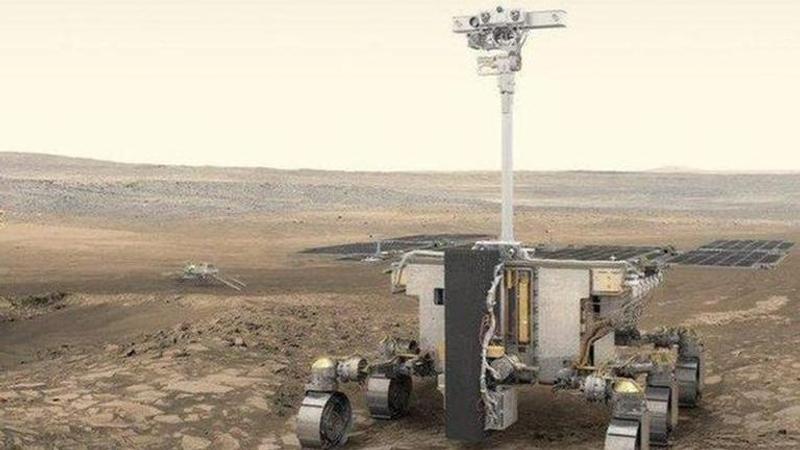Published 15:11 IST, November 24th 2022
ExoMars mission gets new life as Europe regroups with NASA after Russia's backtracking
The ExoMars mission will soon be back on track as ESA has decided to resume its development in collaboration with NASA for a 2028 launch.

Europe has revived its plan to land a rover on Mars with the ExoMars mission which will soon be back on the developmental track. During the Council Meeting which concluded on Wednesday, the European Space Agency (ESA) member states agreed to proceed with the mission’s development after getting ditched by Russia, a partner in ExoMars.
The ExoMars mission involves the European-made Rosalind Franklin rover which Russia was supposed to launch in its rocket and ensure a safe touchdown on Mars inside its descent module, a lander. Now that Russia is no longer a partner, ESA has regrouped with NASA which had earlier backed out citing budget issues as the James Webb Space Telescope was still being built. With Russia, it would have launched in September 2022, however, Vladimir Putin's 'military operation' in Ukraine prompted ESA to cut ties with the Russian space agency Roscosmos.
ESA revives ExoMars
This decision was taken during the council meeting where ESA also secured a 16.9 billion euros ($17.5 billion) budget for the next three years. While the agency's Director-General Josef Aschbacher was hoping for more (18.5 billion euro), it is still an increase of 17 per cent compared to the last ministerial meeting in 2019.
"We didn't get exactly what we asked, but we must put it in context. We received 10.3bn in 2016, 14.5 in 2019, and now 16.9bn at #CM22 representing a 17% increase in time of war, Covid, an energy crisis. A huge success, showing Europe's understanding that SPACE OFFERS SOLUTIONS (sic)," Aschbacher tweeted.
While this budget would fund a range of Europe's space ambitions, including projects on climate change and energy needs, ExoMars is a major endeavour that would see its revival. In a tweet, the UK space agency revealed that it will provide a new landing platform for the mission and the launch is now targeted no earlier than 2028.
While NASA is yet to formally make an announcement, it will provide critical equipment like an engine for the descent module and radioactive heating units, Ars Technica reported. As for the launch vehicle, Elon Musk's SpaceX is the only candidate to provide launch services for ExoMars, however, new options such as the Starship rocket, United Launch Alliance's Vulcan rocket, or Blue Origin's New Glenn rocket might also be available by 2028.
Updated 15:10 IST, November 24th 2022



